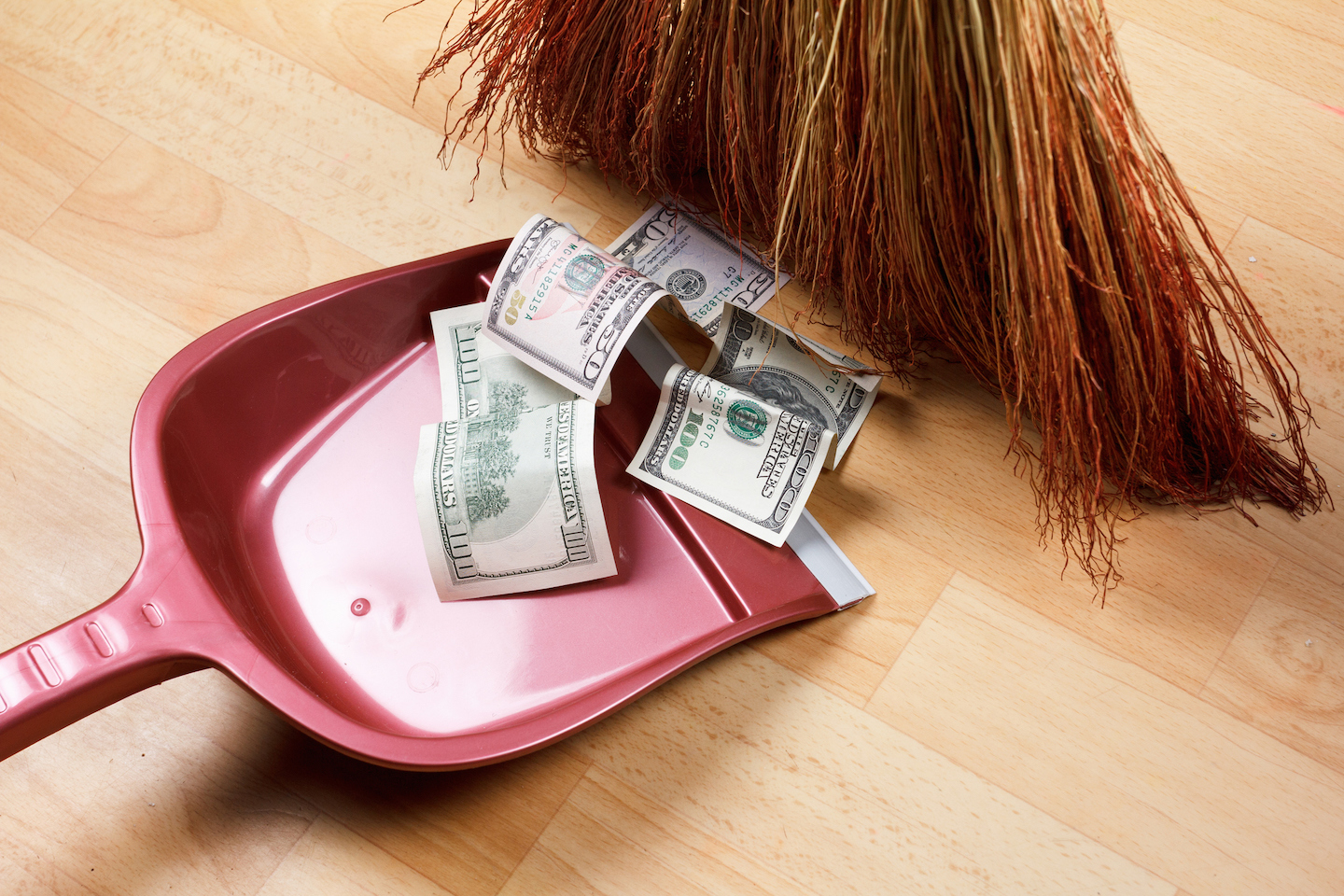
“Spring cleaning” may conjure up visions of decluttered closets, spotless refrigerators and dust-free baseboards. Just as you may give your home a polishing, spring is an ideal time to do the same with your finances.
These seven steps can get your finances in top shape for the rest of the year.
- Update your spending plan. First, review your short-term and long-term spending goals, on your own or with your partner or family as applicable. Then take a good look at your income and spending plan, which is all a budget really is. Does your spending allow you to cover all expenses with regular income (not with adding debt), and let you accumulate some savings or pay off debt? If not, there’s no magic solution. This is the time to figure out how to increase income or decrease expenses.
- Clean up your credit. Credit reports are important because much of the information that appears on them is used to calculate credit scores. Once a year, you can request a free credit report from all three major reporting bureaus, for free, at www.annualcreditreport.com. If you’ve not done so in the past year, this is an excellent time. Review the reports for any errors, and if you find any, follow the directions on each ag ency’s website to correct.
- Develop a plan to pay down debt – especially credit card debt. Many people are still paying off holiday credit card or have otherwise accumulated higher balances. Don’t let that debt linger. Saying you’ll pay off your credit card debt, much like saying you’ll lose weight, doesn’t go far without a concrete plan of action. If you cannot pay all your debts down in a short period of time, determine a fixed monthly amount you can pay toward it. The amount should be more than the combined minimum payments on all your cards. Then choose either the avalanche or snowball method to determine how to allocate your payments. And for those considering a home equity agreement, remember that using funds from the agreement is an excellent option for paying off debt.
- Start a new habit. Make savings a “bill” you must pay, even if it is as little as $1 per day. It’s often easier to save if you can take advantage of direct deposit through your employer, or simply set up your own automated transfers from a checking to a savings account. You’ll want to gradually build an emergency fund that eventually will cover six to nine months of basic living expenses. You’ll also want to dedicate a portion of your savings bill to retirement savings, whether through an employer or through an individual savings vehicle.
- Find extra money. Sound too good to be true? Conduct an annual scouring of your household bills and you may be surprised to find places where you can free up cash. Look at your list of expenses from item No. 1 on this list. Then methodically examine each item to see if you can cut the cost. Can you reduce your streaming subscriptions to the one or two you consistently use? If you’re back working at an office, can you get there by bike, foot or carpool? Can you find a more affordable cell phone plan? Seemingly small changes can add up, and help you move your finances forward more quickly.
- Check your insurance coverage. Reviewing your insurance coverage – health, homeowner’s, renter’s, auto, disability, life, and long-term care – is a good step to take each spring. If it’s been a while, consider reviewing rates with a few insurers, or getting online quotes to compare premiums and coverage. If you decide to make a change in health insurance, you’ll be prepared before open-enrollment period begins in the fall.
- Go paperless. Paperless billing is good for the environment, and it eliminates the possibility of stolen mail, and misplaced bills and documents. Contact your financial institutions and/or utility providers and set up electronic billing. Enter due dates in your calendar (to avoid forgetting to pay on time) or set accounts to automatically make a payment each month to never miss a payment. Just make certain you will have funds in your account to make the payments. While you’re at it, eliminate junk mail. Visit the Direct Marketing Association’s website at www.dmachoice.org to opt out of most catalogs.
Directing some of that energy you have for spring cleaning your home toward cleaning up your finances will help keep you on track financially all year long.
The blog articles published by Unlock Technologies are available for general informational purposes only. They are not legal or financial advice, and should not be used as a substitute for legal or financial advice from a licensed attorney, tax, or financial professional. Unlock does not endorse and is not responsible for any content, links, privacy policy, or security policy of any linked third-party websites.”


